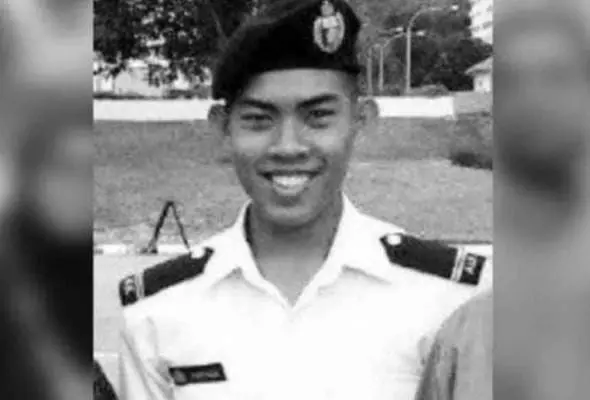University life is supposed to be about learning, making friends, and shaping one’s future. But for Zulfarhan Osman Zulkarnain, a naval cadet officer at Universiti Pertahanan Nasional Malaysia (UPNM), it became the setting of his worst nightmare.
A simple accusation of laptop theft spiralled into a brutal case of bullying, violence, and ultimately, death—a tragedy that left his family devastated and the nation outraged.

For nearly seven years, Zulfarhan’s case has gone through multiple twists in the legal system, from a high court ruling, an appeal that imposed the death penalty, and finally, a Federal Court decision that overturned the death sentence.
Here’s a look at the long road to justice for Zulfarhan.
May 2017: A dispute that escalated into torture
It all started with a missing laptop. Zulfarhan, just 21 years old at the time, was accused of stealing it. Instead of resolving the issue through proper channels, a group of fellow students decided to take matters into their own hands.
Over the next few days, Zulfarhan was tortured in his own dormitory, enduring unimaginable pain. He was beaten and had a steam iron pressed against his body multiple times. The burns covered 80% of his body, leaving him in unbearable agony.
Despite his suffering, no one took him to the hospital. He was left to fight for his life alone—but he never got the chance to recover.
June 1, 2017: A life lost too soon
By the time Zulfarhan was finally taken to Serdang Hospital, it was already too late. His body had endured 90 burn wounds, some reaching third-degree severity. He couldn’t hold on any longer.
He was pronounced dead on June 1, 2017.
His death sent shockwaves across the country. How could this happen in a university that was supposed to shape future leaders? Why didn’t anyone stop the torture before it was too late?
That same day, six UPNM students were arrested, facing the weight of justice for what they had done.
November 2, 2021: First ruling – 18 years in prison
After years of investigation and court hearings, the Kuala Lumpur High Court finally reached a decision. The six accused were found guilty—but not of murder.
The court ruled that they were responsible for causing Zulfarhan’s death but did not intend to kill him. As a result, they were convicted under Section 304(a) of the Penal Code for culpable homicide, not murder, and each sentenced to 18 years in prison.
The ruling divided public opinion. Some felt the punishment was too lenient, given the brutality of the crime, while others believed it was a fair decision.
July 23, 2024: Death sentence imposed
In a shocking turn of events, the Court of Appeal overturned the previous ruling. The judges found that the injuries Zulfarhan suffered were severe enough to warrant a murder conviction.
Under Section 302 of the Penal Code, this meant one thing:
A mandatory death sentence for all six accused.
For the first time, the six young men faced the possibility of execution for what they had done. The case, already tragic, took an even more dramatic turn.
February 2025: The death sentence overturned

The six convicted students took their case to the Federal Court, hoping to avoid the gallows.
Their lawyers argued that while they caused Zulfarhan’s death, they never intended for it to happen, reported Berita Harian.
The case was heard by a three-judge panel, led by Chief Judge of Malaya Datuk Seri Hasnah Mohammed Hashim.
After reviewing the evidence, the Federal Court ruled in favour of the appeal. The judges decided that while the accused were responsible for Zulfarhan’s suffering and death, there wasn’t enough proof to convict them of murder.
The death penalty was overturned, and their original 18-year prison sentence was reinstated.
A key factor in the decision was the medical testimony of Dr. Salmah Arshad, the forensic expert who conducted Zulfarhan’s autopsy. She testified that although 80% of his body was burned, proper medical treatment could have saved his life.
What now?
The six convicts will now serve their 18-year sentence, with their time in prison counting from June 1, 2017, the day they were arrested.
For Zulfarhan’s family, no court ruling can ever bring him back. His mother and father will always live with the pain of losing their son in such a cruel and senseless way.



